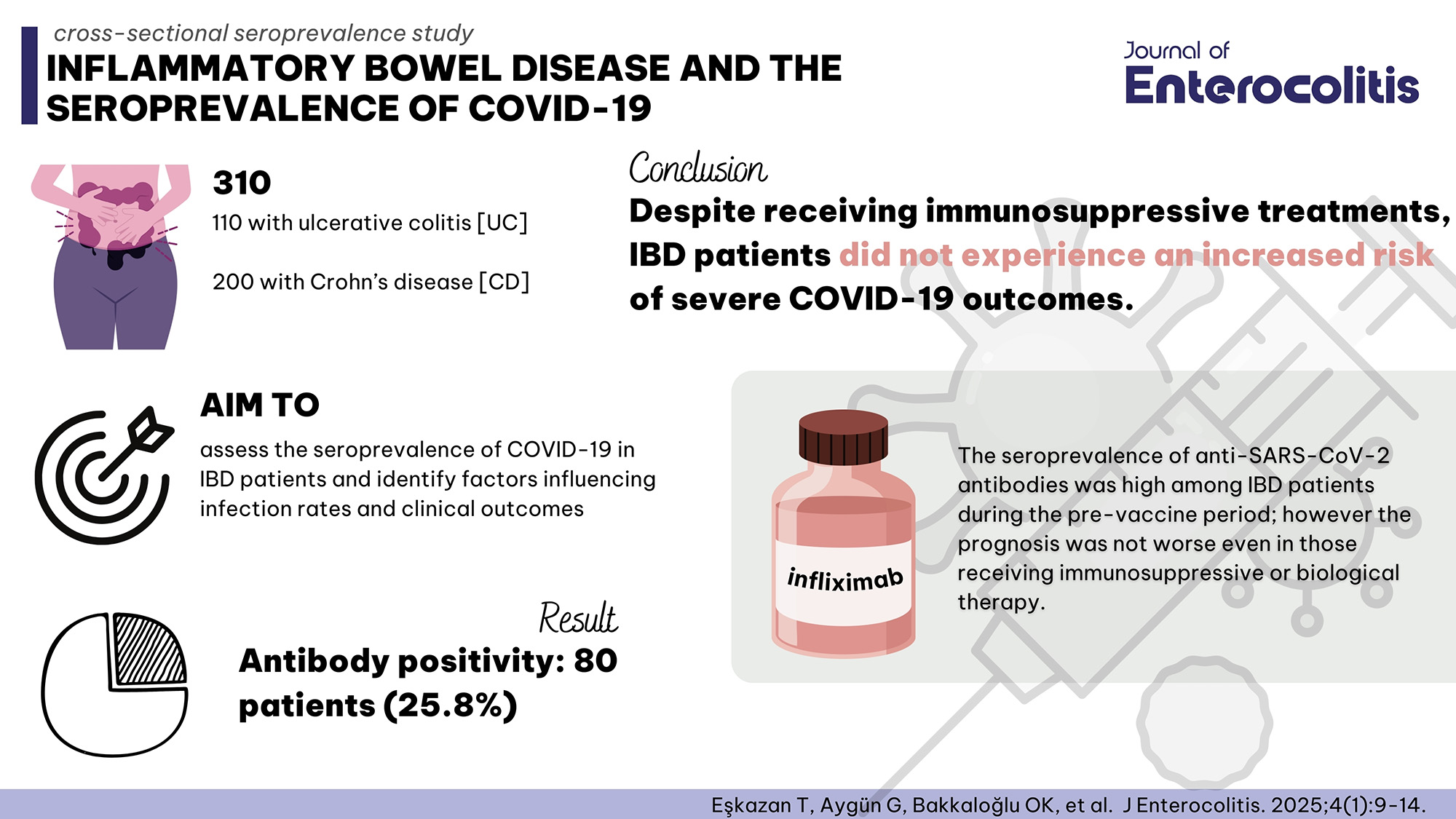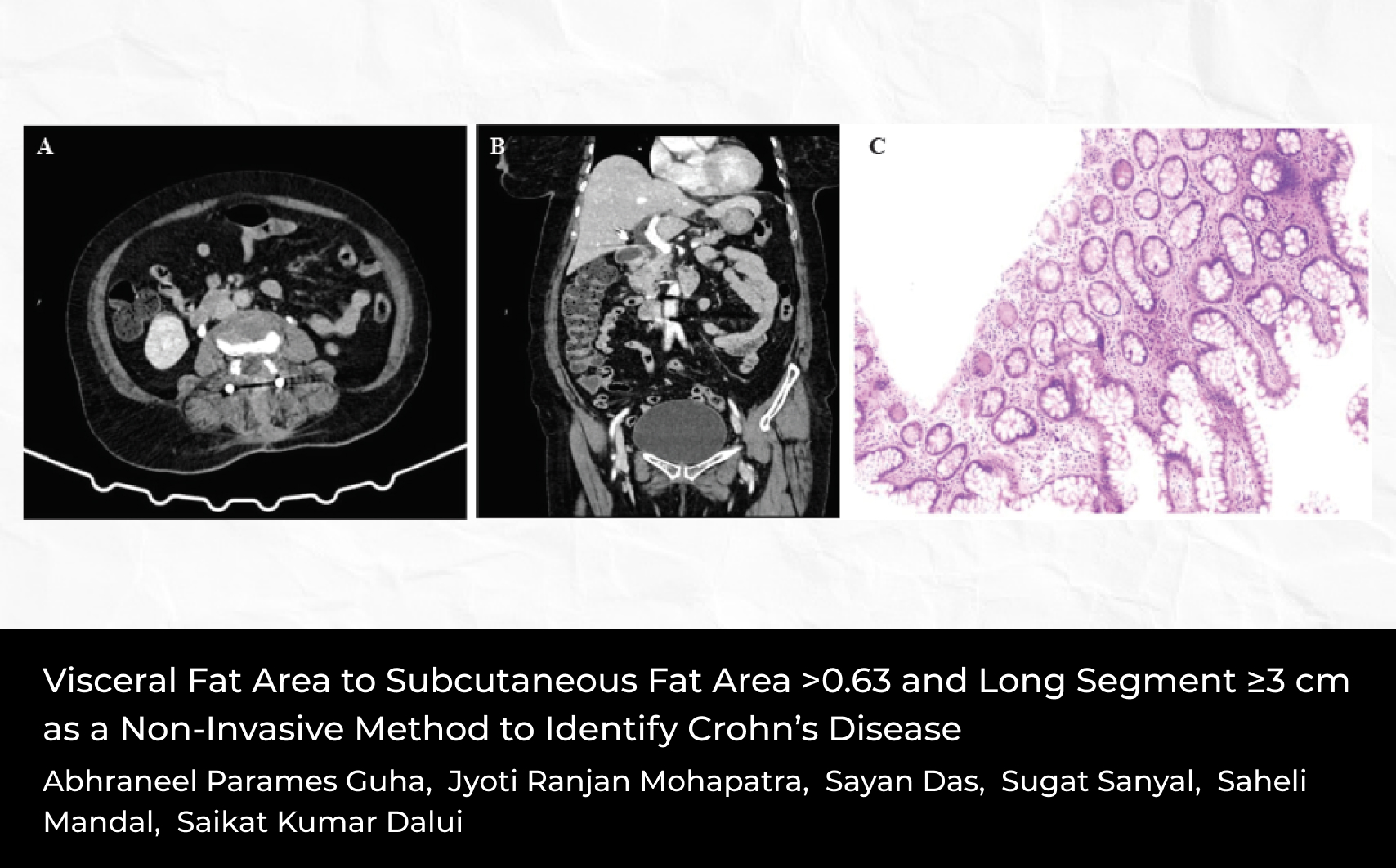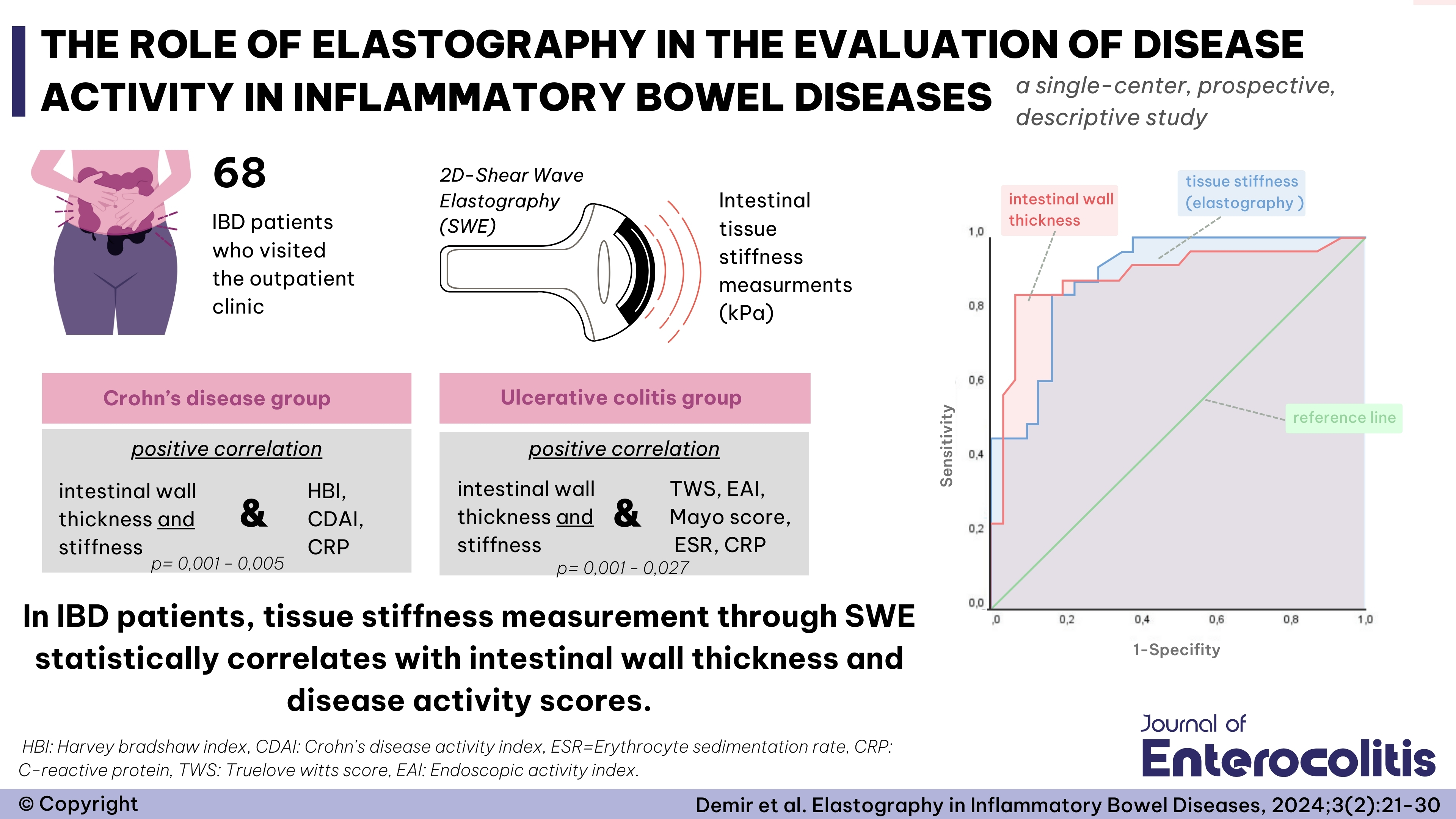2Department of Gastroenterology, Gülhane Training and Research Hospital, Ankara, Türkiye
3Department of Family Medicine, Ankara Yıldırım Beyazıt University, Ankara City Hospital, Ankara, Türkiye
Abstract
Objective: Severe symptoms such as bloody diarrhea and abdominal pain in inflammatory bowel disease patients, combined with a chronic course with remissions and relapses, cause significant emotional and social distress. These symptoms severely limit inflammatory bowel disease patients’ daily lives, social functions, and functional capacities and have a significant impact on their quality of life. In this context, the importance of quality of life assessment in inflammatory bowel disease patients is increasing daily. The short health scale is a visual analog scale questionnaire consisting of 4 questions. We aimed to validate this scale in Turkish-speaking patients.
Methods: The short health scale was applied to 125 inflammatory bowel disease patients with 75 ulcerative colitis and 50 Crohn’s disease patients. The short health scale was a 100 mm visual analog scale with 4 questions.
Results: The median disease duration of inflammatory bowel disease patients was 5.3 years (0.4-26.5), the mean age was 42.4 ± 14.2 years (19-77), and 60.8% (n = 76) were male patients. A positive correlation was found in comparing Truelove–Witts index and Harvey–Bradshaw index results with short health scale scores. There was no significant difference in the distribution of disease activity severity at the eighth-week follow-up in ulcerative colitis and Crohn’s disease patients.
Conclusion: The short health scale, which was determined as a valid and reliable measurement tool, can be used in Turkish-speaking patients with inflammatory bowel disease. It can be a good choice for outpatient and home care patients because it is simple and easy to use.









 Sehernaz Ekici1
Sehernaz Ekici1 






